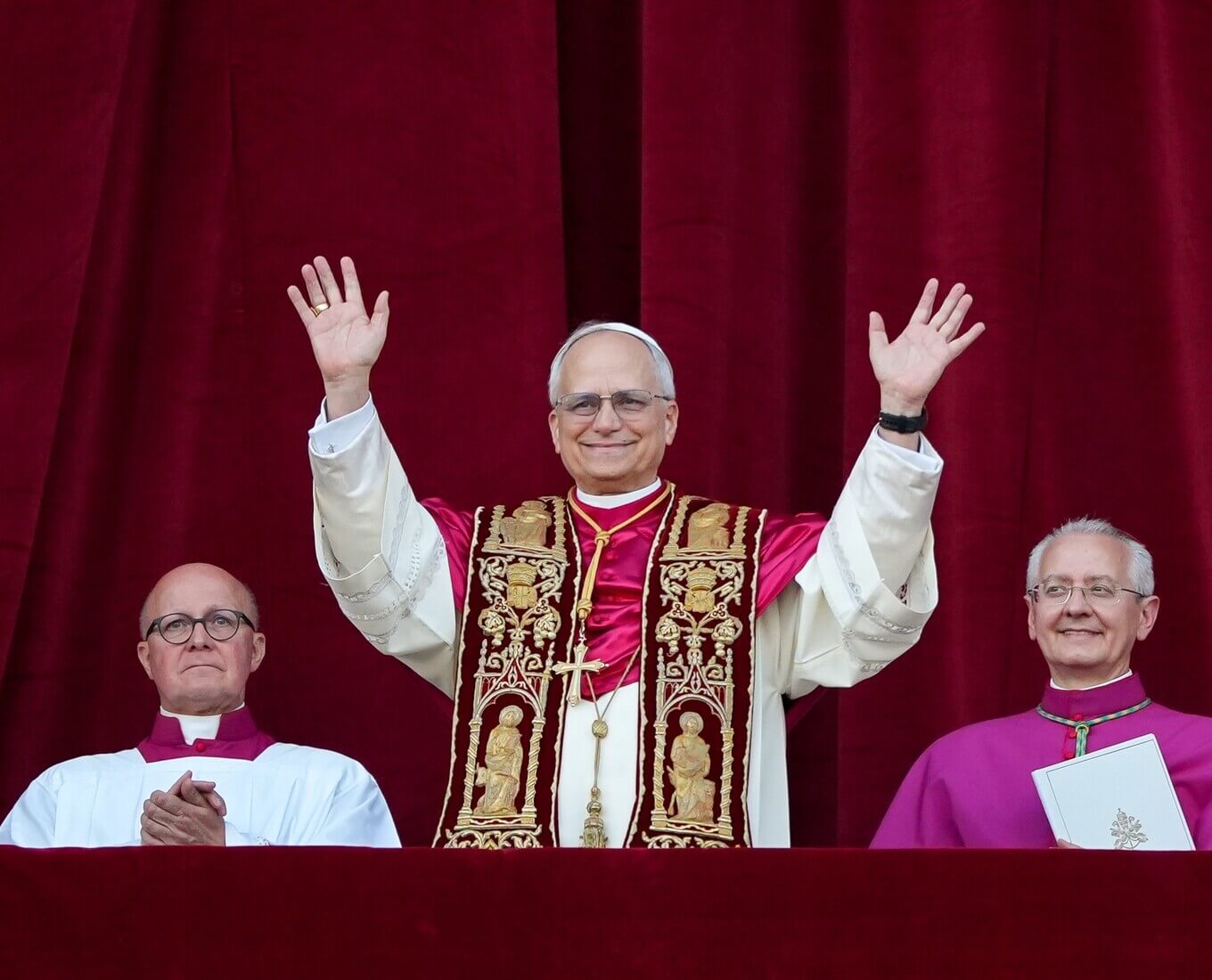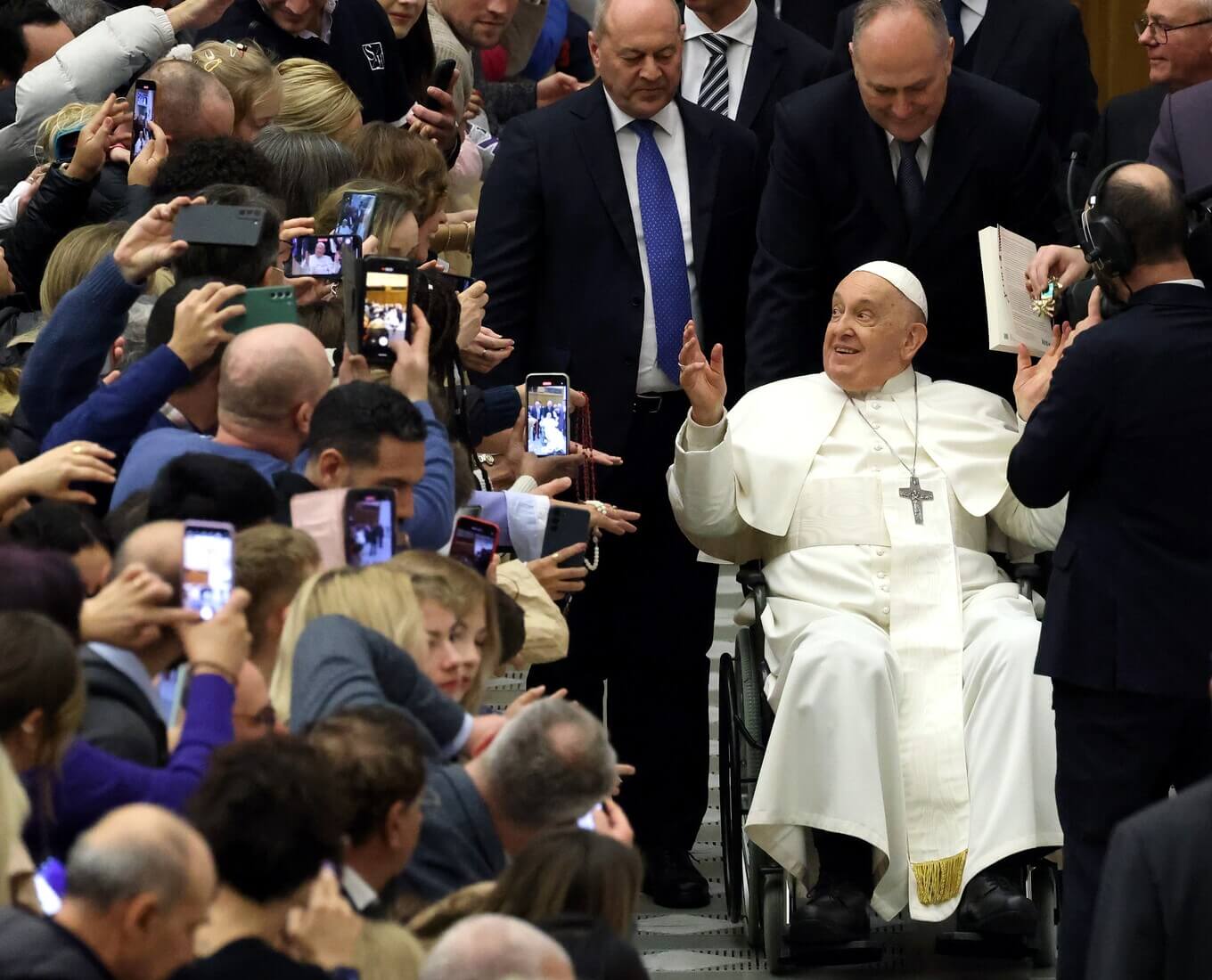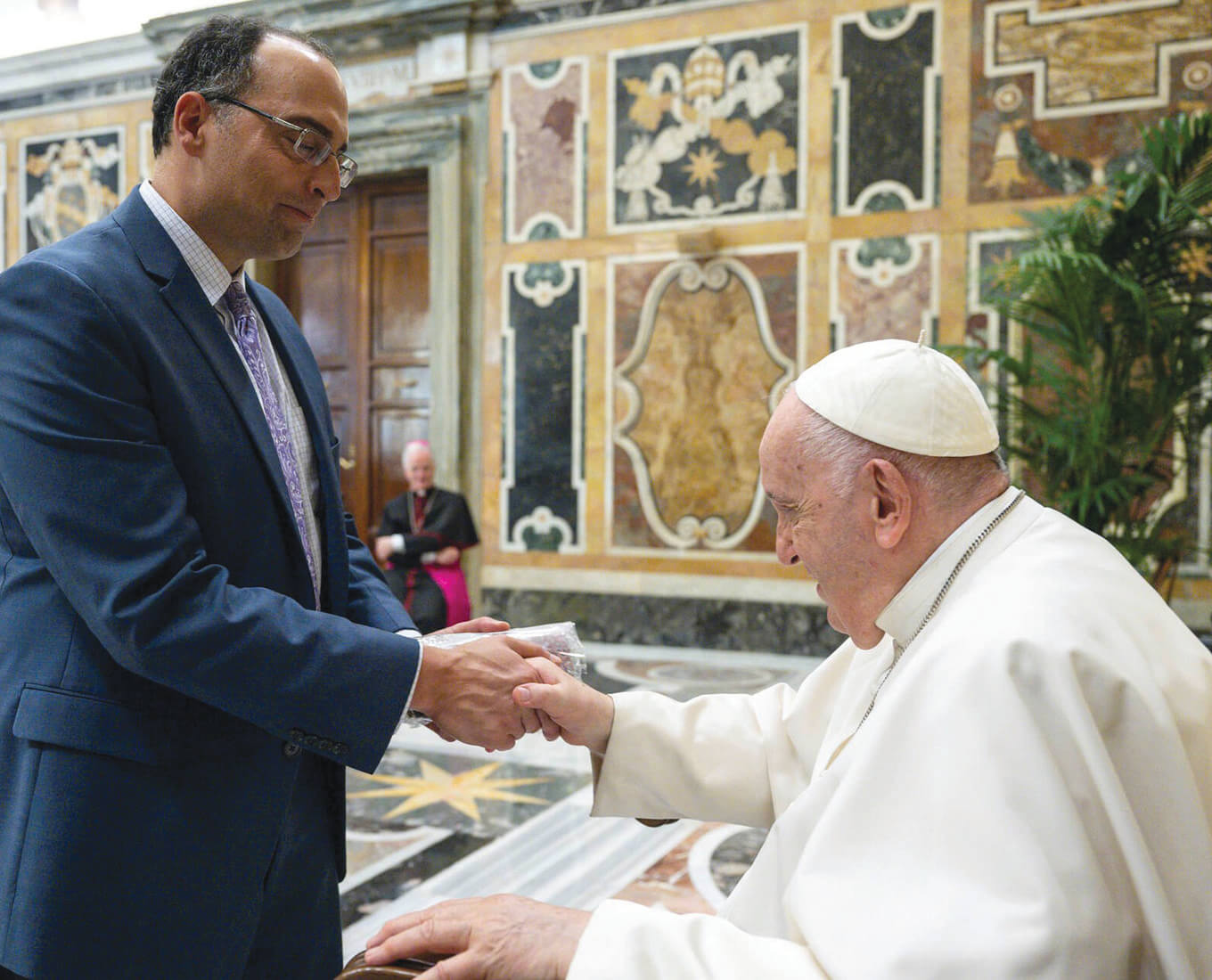On May 9, 2024, the late Pope Francis issued Spes Non Confundit (SNC) — “Hope Does Not Disappoint” — the “Bull of Indiction” (proclamation) of the Ordinary Jubilee Year of 2025. At St. Peter’s Basilica the following Christmas Eve, the pope passed through the “Holy Door” that is opened only during a Jubilee Year and is otherwise kept sealed. That ceremony was repeated in succeeding weeks at the other three Papal Basilicas in Rome: St. John Lateran, St. Mary Major and St. Paul-Outside-the-Walls. The Vatican, and the Church across the globe, is now fully engaged in the celebration of the Jubilee.
So, what, exactly, is a Jubilee? The concept goes back a very long way, to precepts of the Mosaic Law recorded in the Book of Leviticus. At 25:8-10, we read:
"You shall count seven weeks of years .... Then, on the tenth day of the seventh month ... the ram’s horn (yobel) blast shall resound throughout your land .... You shall treat this fiftieth year as sacred."
This passage is followed by a series of elaborate instructions for the return of ancestral land, fields being left fallow, redemption from servitude, settling of debts and celebration. Scholars debate when, if ever, such provisions were actually carried out. Yet, based on Leviticus’ proclamation, the symbol of a “year of favor from the Lord” (Isaiah 61:2) has been firmly established in both Jewish and Christian imaginations for millennia. It echoes in the words of the Prophet Isaiah in the Hebrew Bible. Christians are aware of it in Jesus’ own proclamation at the beginning of his public ministry, quoting words from Isaiah 61:1: “The Spirit of the Lord is upon me” (Luke 4:18). American Christians and Jews can see Leviticus 25:10 engraved around the top of the Liberty Bell in Philadelphia, in the King James translation: “Proclaim liberty throughout all the land unto all the inhabitants thereof.”
“Jubilee” was a particularly poignant image for enslaved Black Americans before the Civil War and can be encountered in Black spirituals sung in churches and various venues to this very day.
Specifically, Christian Jubilee years date back to the year 1300, when Pope Boniface VIII declared the first one with an invitation to all Christians to come to Rome as pilgrims and to receive God’s merciful pardon of their sins. Succeeding pontiffs proclaimed Jubilees at various intervals until 1475, when the 25-year pattern took hold. There has been a Jubilee Year observed every 25 years since that time, with the exceptions of 1800 and 1850 (when Napoleonic ambitions and Italian nationalist turmoil interfered). This is what is meant by the designation of 2025 as an “ordinary” Jubilee Year. (There are also “extraordinary” Jubilees, proclaimed at the decision of particular popes, such as the “Extraordinary Jubilee of Mercy” observed at the call of Pope Francis in 2016.)
Although the short answer for “Why now?” is simply, “It was time,” Pope Francis included a number of points in his explanation, in SNC, of conditions that he believed make this also “the right time” for a Jubilee celebration – the 1700th anniversaries of the construction of the Cathedral of St. John Lateran and of the Council of Nicaea and its Trinitarian creed; the “providential” coincidence of a common date for Eastern Orthodox and Western celebrations of Easter on April 20, 2025; and remote preparations for the “Extraordinary Jubilee of Redemption” in 2033, to celebrate the 2000th year since Christ’s Resurrection. But Pope Francis invested most of his words in the theme of hope chosen specially for this Ordinary Jubilee of 2025.



